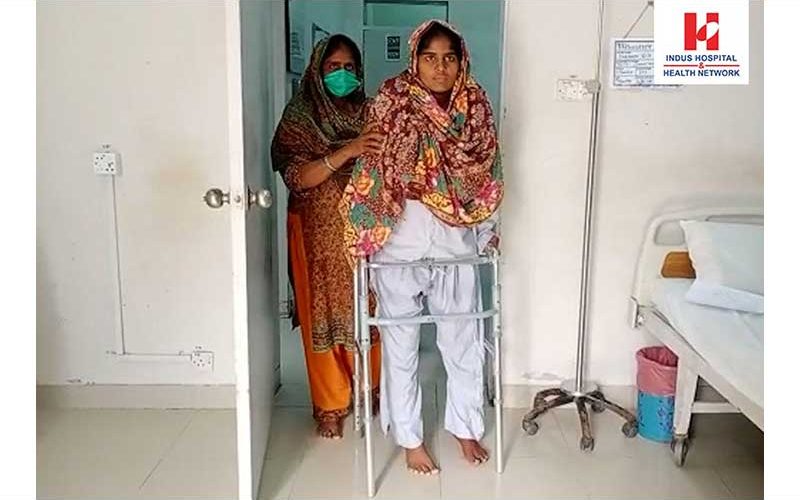WALKING AHEAD – Mari
-
by
admin
Mari was beaming from ear to ear as she shared the news of her first pregnancy with her family. Overwhelmed with emotion, the family celebrated the good tidings as they started getting ready to welcome the new addition.
Living in poverty with her husband’s family in rural Sindh, Mari hoped to have children for years, and her dream had finally come true. But tragedy struck the young woman as she fell to the floor and injured her leg. The family rushed her to the hospital in the village where the doctors told her they would not be able to treat her leg until after giving birth, so she remained bedridden for nine months.
After giving birth to a healthy baby girl, Mari started visiting hospitals with her mother, determined to find a way to have her leg fixed and regain her independence. Her leg was deteriorating rapidly, and her mother was worried that her life could be in grave danger without immediate treatment. However, none of the doctors in her area had the equipment or expertise to help her with her rapidly degenerating leg. One of the doctors recommended they seek treatment from the District Headquarter Hospital (DHQ), Badin, which is under the Indus Hospital & Health Network umbrella offering free treatment.
When she came to the DHQ, Badin, the medical team saw that the damage on her leg was worse than what Mari and her mother had feared and immediately had an X-ray done on the damaged portion. The X-ray showed that she was suffering a fracture with a tumor on the femur. The femur is the only bone in the thigh and is the origin and attachment of many muscles and ligaments for the leg.
Dr. Mohammad Wasim, a junior consultant at the DHQ Hospital Badin, discussed her situation with his supervisors and they unanimously agreed that further testing needed to be done. They arranged for her to get an MRI done at The Indus Hospital, Korangi Campus in Karachi. The radiology department took over from there and confirmed that she was suffering from a benign bone tumor called fibrous dysplasia.
Dr. Waseem coordinated with The Indus Hospital, Korangi Campus surgeon, and the director of orthopedics. They gave him the go-ahead to do the biopsy, which confirmed the fibrous dysplasia. Based on her worsening condition, they planned on operating on her immediately. However, due to being bedridden for nine months, her knee had stiffened, and she could not travel. Dr. Waseem and his team
looped in the team from Karachi and performed the surgery in Badin. They worked to fix the hip joint fracture, knee fracture, and tumor.
The surgery was successful, and Mari was thrilled to be able to stand on her own two feet after months of being confined to a bed. After physical therapy, and with the help of her mother and the hospital staff, she could finally walk again. It was a landmark achievement for the DHQ Hospital Badin, as it was the first Oncology/Orthopedic case in the hospital since its inauguration.
“It was a long and harrowing journey, and there were times I was afraid I would be stuck in my bed forever,” says Mari. “I wanted to be there for my child’s first steps, to play with her and to have an active part of her life. Thank God, with Dr. Waseem and the medical team’s help from the DHQ Hospital in Badin, I can be a mother and take care of my family.”





